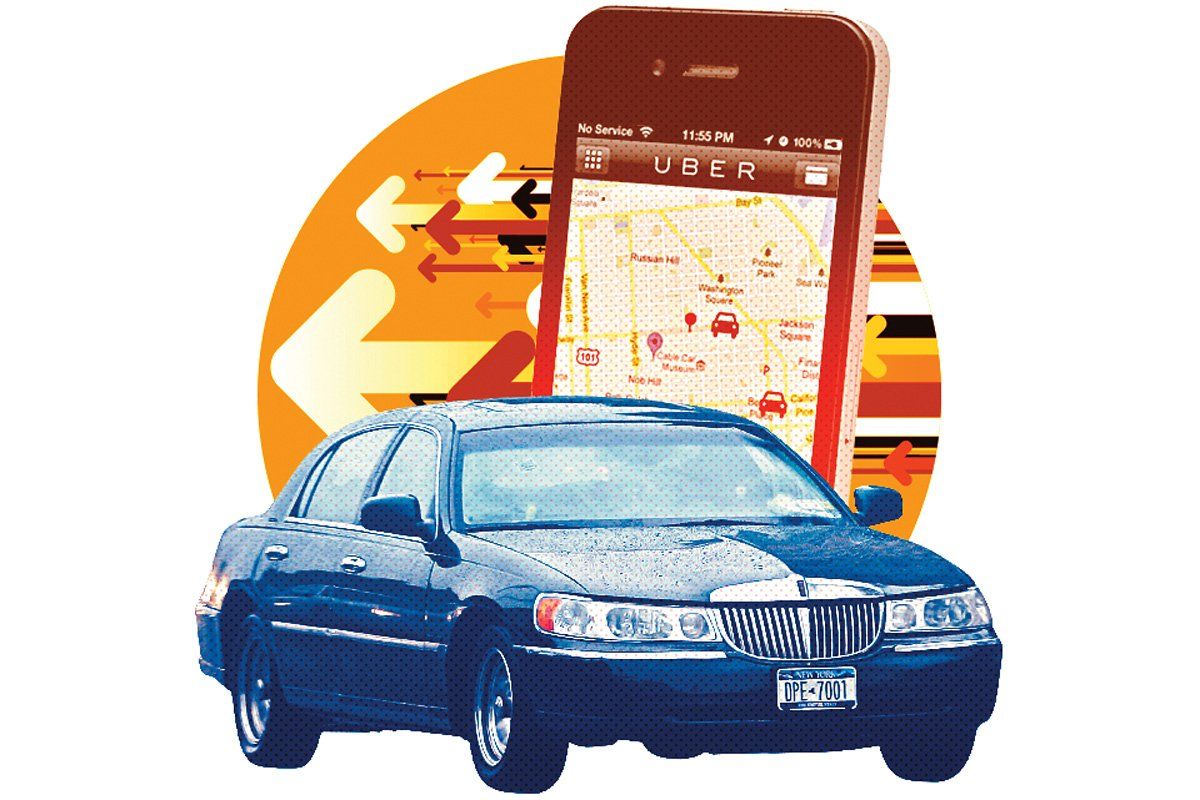
It's hard to think of a market more mired in the mid–20th century than urban taxis and car services. In a world of digital markets, buyers and sellers of the service interact in the most analog way imaginable. Drivers cruise the streets, advertising their availability, and buyers stand and try to hail them, competing against the elements and one another. It seems to be a classic case where a simple app could make the whole thing run more efficiently.
Enter Uber. You download the app, punch in your coordinates, and wait for a driver from a car or taxi service to arrive. The user pays Uber a fixed fee, plus time and mileage, and Uber pays the driver. "We look at ourselves as a technology company," said Travis Kalanick, the mastermind behind Uber, which has 140 employees and is based (natch!) in San Francisco. "We don't employ cars. We don't employ drivers. We help consumers connect with the legal, regulated transportation providers in their city."
Social companies like Uber—think of Airbnb, or eBay, or Craigslist—have been able to gain scale and customers very quickly because the barriers to entry are few. They never really asked for permission. And so Uber, whose business is rising at a 26 percent monthly rate and is now in 18 cities, generally took a sidewise approach to regulators. It would consult a lawyer to make sure the service was legal, sign up drivers, and get going. After all, it's only providing the technology.
But car services and taxis are not normal free-market businesses. Cities regulate them to promote safety and to prevent discrimination, so they end up operating more like cartels. In New York, the company's effort to sign up yellow medallion cabs stalled out after just six weeks. Why? The city's Taxi & Limousine Commission said regulated taxis could only process payments through companies with which the commission had a contract. San Francisco taxi drivers have sued Uber, and the California Public Utilities Commission levied a $20,000 fine for operating an unlicensed transportation business.
But in D.C., where the City Council was considering legislation that would bar Uber from offering its services in the district, Uber became something of an inside-the-Beltway cause célèbre. It is hailed by progressive bloggers, who know all too well the difficulty minorities have hailing cabs in gentrifying areas late at night, and by conservative outfits like the Heritage Foundation, which see it as an anti-regulatory force.
On Dec. 2, Uber scored a victory. The Washington, D.C., City Council passed a new regulation that, in the words of CEO Kalanick, made it "very clear that Uber and its partners, the licensed/regulated sedan companies and drivers, can't be regulated out of existence." Next up: Sydney and Amsterdam.
Uncommon Knowledge
Newsweek is committed to challenging conventional wisdom and finding connections in the search for common ground.
Newsweek is committed to challenging conventional wisdom and finding connections in the search for common ground.





